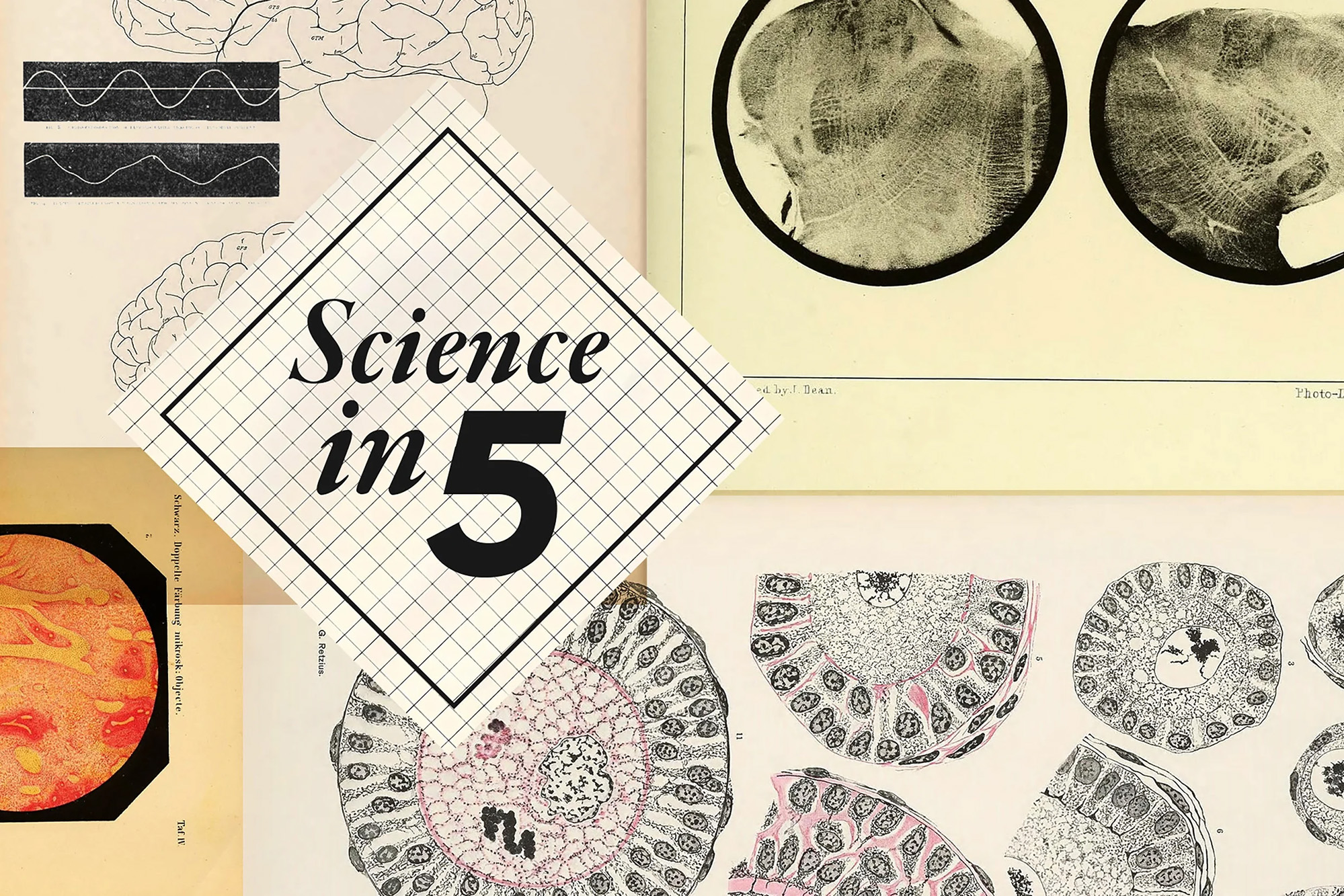Are vaccines safe? What’s actually in them? In this two-part episode of the World Health Organization podcast Science in 5, Dr. Kate O’Brien breaks down how vaccines are tested, approved, and monitored even after they reach the public. She also explains what happens if a safety concern is flagged.
Over the last 50 years, essential vaccines have saved at least 154 million lives. That’s 6 lives a minute, every day, for five decades. Under the banner, ‘Immunization for All is Humanly Possible’, World Immunization Week 2025 aims to ensure even more children, adolescents, adults – and their communities – are protected against vaccine-preventable diseases. Vaccines are proof that less disease, more life is possible when we put our minds to it. It’s time to show the world that immunization for all is humanly possible.
What does a mother need to know to ensure that she has a safe pregnancy and delivery? What are some warning signs to watch for? And what are a woman’s rights while going through a pregnancy and delivery? Join maternal health expert Dr Femi Oladapo in a new episode of WHO's Science in 5 podcast.
Sudan is facing a devastating civil war that has lasted two years, leading to widespread violence, displacement, and a severe healthcare crisis. Up to 80% of health facilities in the hardest-hit areas are either barely operational or completely closed. The conflict has displaced millions and resulted in horrific atrocities, including systematic rape. With an estimated 91,000 women expected to give birth in the next three months, many lack safe access to healthcare. Over half of Sudan’s population, approximately 30.4 million people, will need assistance in 2025 due to ongoing attacks on facilities and significant funding shortages. The United Nations sexual and reproductive health agency (UNFPA) is working to support the few operational health facilities, providing essential services to women and girls amidst these challenging conditions.
Antibiotics save lives. But when the supplies run low or bacteria become resistant, the risks grow — especially in developing countries. On this episode of UNCTAD’s The Weekly Tradecast, economist Bruno Casella explores the challenges of securing essential antibiotics, the impact of limited local production, and how better investment and coordination can strengthen supply chains.
Severe resource shortages are threatening the global response to end tuberculosis. Is the world on the brink of a global TB crisis? A quarter of the world’s population could be infected with TB and not even know it. Is there a cure? What is the treatment? How do we diagnose TB? Listen to Dr Tereza Kasaeva in a new episode of the World Health Organization’s Science in 5 podcast.
Close to 300,000 women lose their life due to pregnancy or childbirth each year, while over 2 million babies die in their first month of life and around 2 million more are stillborn. That’s roughly 1 preventable death every 7 seconds. World Health Day kicks off a year-long campaign on maternal and newborn health. The campaign, "Healthy beginnings, hopeful futures", urges governments and the health community to ramp up efforts to end preventable maternal and newborn deaths and to prioritize women’s longer-term health and well-being.
Did you know that diseases are being eliminated by countries all over the world. In the last five years alone, 44 eliminations have been confirmed by the World Health Organization (WHO). What does it take to eliminate a disease? What needs to happen before WHO can certify an elimination? Once eliminated, can these diseases come back? Dr. Jérôme Salomon explains in a new episode of the Science in 5 podcast.
In 2023, 10.8 million people fell ill with tuberculosis, while 1.25 million lost their lives to it. World Tuberculosis Day (24 March) amplifies the urgency of ending TB—the world’s deadliest infectious disease. This bacterial infection, which primarily affects the lungs, continues to devastate millions of people worldwide, with serious health, social and economic consequences. This year’s theme, Yes! We Can End TB: Commit, Invest, Deliver, is a bold call for hope, urgency, and accountability.
Families and people with Down syndrome need support to live and be included in the community, like everyone else. But today, many people with Down syndrome around the world don't get the support they need. Many countries do not have support systems that meet the needs of people with disabilities and their families. Or the support systems they have do not respect the human rights of people with disabilities. This World Down Syndrome Day (21 March), join us to ask our governments to make sure there is a support system, so people with disabilities are included in the community.
“I am now that annoying friend who goes to parties and hands condoms to my friends,” Jennifer, 22, says with a laugh. An intern with Mexico Vivo Foundation, a partner of UNFPA, the United Nations sexual and reproductive health agency, Jennifer says she doesn’t want her friends to get sexually transmitted infections. She also encourages people to get sexual health checks and shares information about health, rights and choices. Jennifer, who lives in Mexico City, learned about such issues from a UNFPA programme called SAFETEEN First – a comprehensive sexuality education initiative supported by Reckitt and taught in workshops by Mexico Vivo. Here, UNFPA goes behind the scenes with Jennifer and other young leaders to illustrate how they’re making a difference in their communities in Mexico.
As Ukraine enters the fourth year of Russia’s full-scale invasion, pregnant women – especially those living closer to front-line zones – continue to face the consequences of war. One initiative that will make an important difference: bomb-proof maternity wards. UNFPA, the United Nations sexual and reproductive health agency, is supporting the construction of new, reinforced underground maternity and newborn units. These specialist units, designed within a bomb shelter, will ensure that women can give birth in safer conditions despite ongoing attacks.
Obesity rates have nearly tripled since 1975, with a significant increase in children and adolescents. It is a major risk factor for noncommunicable diseases (NCDs) such as type 2 diabetes, cardiovascular disease, and various forms of cancer. World Obesity Day (4 March) promotes practical solutions to achieve and maintain a healthy weight, including limiting the marketing of unhealthy food to children, taxing sugary drinks, and improving access to affordable, healthy food. We also need to create safe spaces for walking and cycling and teach children healthy habits from an early age.
Did you know that if a child with measles walks into a classroom, every unvaccinated child will most certainly get it? Why are measles cases increasing worldwide? Why should you be concerned about it? And is the measles vaccine safe and effective? Dr Natash Crowcroft answers these questions in a new episode of WHO's Science in 5 podcast.
Congratulations to Niger for being verified by the World Health Organization (WHO) as the first country in Africa to eliminate the transmission of onchocerciasis, also known as river blindness. This parasitic disease is caused by the Onchocerca volvulus worm, which is transmitted through bites from infected black flies. Niger faced significant challenges due to this disease, particularly in communities near fast-flowing rivers. However, a strong national elimination program and collaboration with partners like the Ministry of Health, USAID, and WHO have led to this historic achievement. Onchocerciasis is one of the three diseases targeted for elimination of transmission in the WHO NTD road map for neglected tropical diseases 2021–2030, the other being leprosy and the gambiense form of human African trypanosomiasis.













